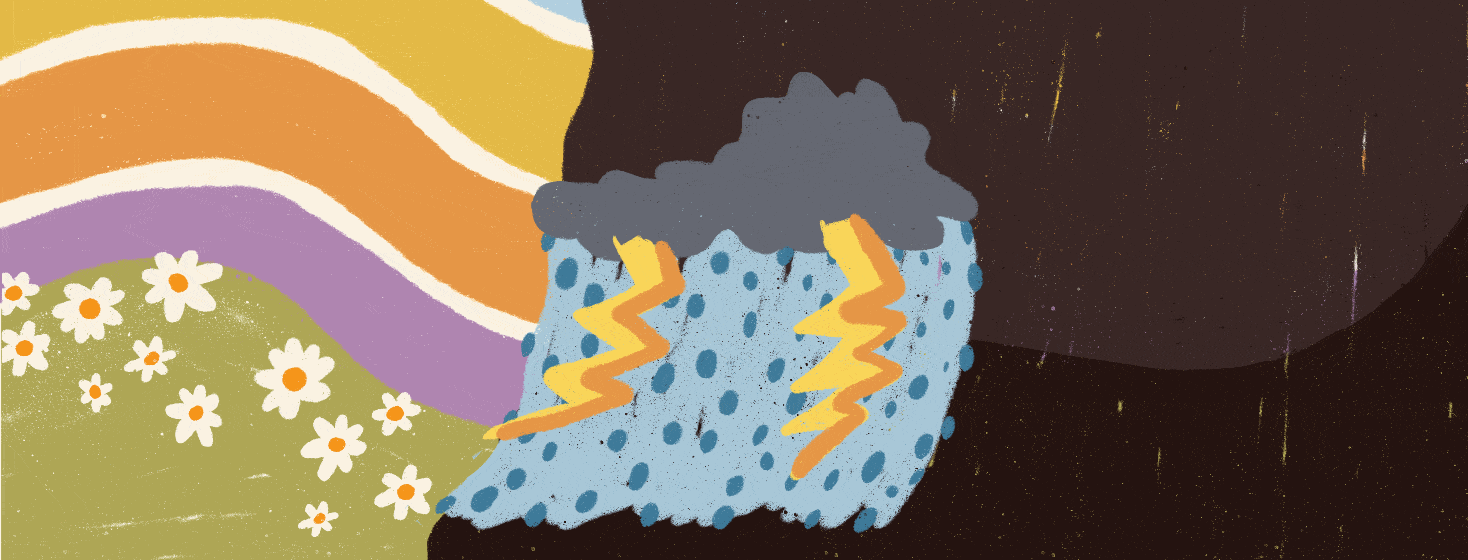The Impact of the COVID-19 Pandemic
I have been thinking a lot about what it means to be resilient lately. Not just what it means but what is required to become resilient. Whenever I embark on a personal journey of reflection, I will encounter things that promote a deeper reflection on the subject. Whether it be a random poster I pass by, an ad on the radio, or an article I read, I always seem to encounter things relating to it.
This morning I was reading through an article by a fellow advocate here on AtopicDermatitis.net, Peter Bunting, where he talked about his experience of trauma and resilience through adversity as a person with chronic illness during the pandemic. This got me thinking about my own experiences of resilience through the COVID-19 pandemic.
Why influenced my son's behavior at school?
A few days ago, our family met with several educators from my son's school. We gathered to discuss strategies to help my son succeed in his behavioral and social goals in his interactions with his peers. I was asked if there had been any notable events that could explain or inform some of the behaviors his teachers were experiencing in class.
I was a bit taken aback by the question. In my opinion, it seemed a bit silly to ask.
Regardless, I responded with a polite, “Of course; where would you like me to start?” As I began divulging some of my family's collective experience of trauma over the past few years, I could see understanding beginning to form.
What did he experience during the pandemic?
I explained to them that my son, who is not neurotypical, who began his first year of school being homeschooled due to a pandemic, who watched his mom become visibly and terrifyingly sick from multiple chronic illnesses, along with economic hardship and much much more was having a bit of a tough time adapting.
What did I experience during the pandemic?
This time last year, I hit a very low point. My family was struggling financially from the costs of my combined illnesses and attempts at treatment. By this point, I had been told that if certain symptoms did not stop that my time would start to run out. My eczema had left me covered in open, weeping ulcerations over most of my body. Most prominently on my face. It took my eyebrows and eyelashes too. I was angry and terrified. I felt cheated by life, and I did not know what to do. My vascular blood disorder was killing me, and I looked like I had escaped from a zombie quarantine zone! Greeeeat.
How do my chronic illnesses impact my family?
My family was right beside me through all of it. They felt the fear, the pain, and the loss - all of it right alongside me. Feeling sad for having been a source of trauma in others' lives, regardless of the reason being out of my control, is a hard thing to process.
Whether I like it or not, my experiences of chronic illness have affected my children, and I am happy to report that our family entered a much more stable and calm period some time ago now that we are still processing everything that happened.
How are we all healing?
Processing through trauma can look different from person to person. It can come in bursts or be a consistent length of time. It can push us forwards or backward. It can bring us closer to our truth or move us farther away from it.
We grow at the speed of pain.
It all depends on how each individual is supported through this process. As I explained this to my son's teachers and our meeting turned more to strategy than history, I began to realize the gravity of my and my family’s experiences of my chronic illnesses.
When you are in the thick of it, experiencing the trauma, it’s difficult to imagine that the experience could ever lead to anything positive in any way. However, resilience doesn’t work like that.
How will we get through it?
My son will have challenges ahead, and so will I. We will also have many triumphs alongside those challenges. My remission may not last for long, but it also could last for a long time. Perspective and vulnerability, as I am learning, go a long way when it comes to developing resiliency. Which, when you live with chronic conditions like atopic dermatitis, is a necessity.

Join the conversation